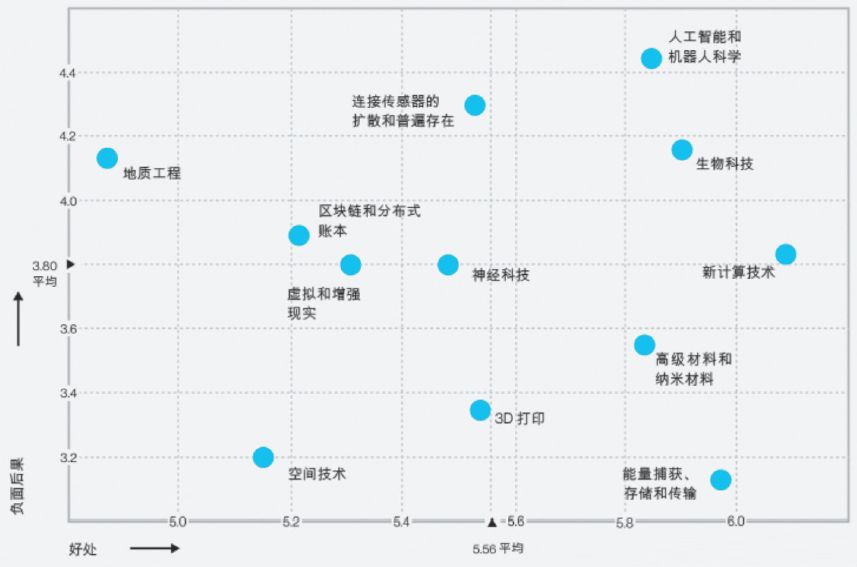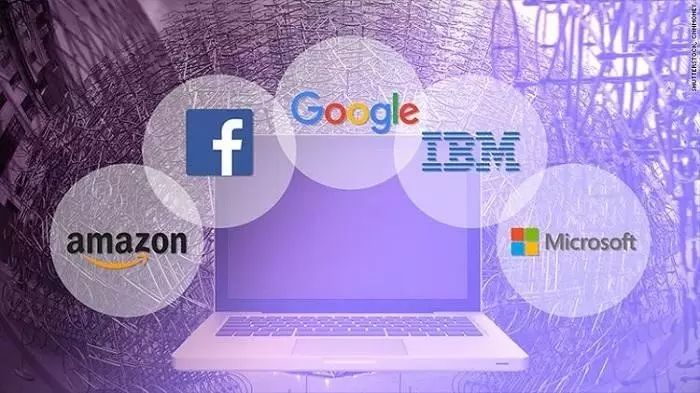The Miracle, Ethics And Infinite Possibilities Of Artificial Intelligence—a Deep Dialogue Between Technology And Humanity
The Miracle, Ethics And Infinite Possibilities Of Artificial Intelligence—a Deep Dialogue Between Technology And Humanity
Hey, friends! Have you ever asked yourself secretly in the middle of the night: "What will the future world look like? Will there be a talking robot help me cook and chat with me?" Don't worry, this is not a science fiction movie, but a real story that is happening.
Hey, friends! Have you ever asked yourself secretly in the middle of the night: "What will the future world look like? Will there be a talking robot help me cook and chat with me?" Don't worry, this is not a science fiction movie, but a real story that is happening. Today, we will use the "fire eyes" of big data to take you through the magical world of artificial intelligence (AI), explore its future, ethics, and those infinite possibilities that make people excited.
1. The rise of artificial intelligence: from "assistant" to "partner"
Looking back, artificial intelligence has experienced an amazing leap from the "chess master" in the 1950s to the "all-round warrior" today. According to data, the global AI market size has exceeded US$1.4 trillion in 2023, and is expected to reach US$15 trillion by 2030! This means that AI is growing rapidly at a rate of 30% per year and has become the "engine" that drives the global economy.
For example, the application of AI in the medical field: analyzing massive medical images through deep learning models, the accuracy rate reaches more than 96%, far exceeding the traditional methods. For example, autonomous driving technology has achieved "unmanned driving" in some cities. In the next ten years, it is expected that global autonomous driving vehicles will account for 30% of new car sales.
2. Future AI: "Smart Partner" Beyond Imagination

The future AI is not just a "tool", but more likely to become a "partner". Imagine that in the future you have a "smart friend" who can help you plan your life, chat with you, and even provide spiritual comfort. According to the latest research, future AI will realize "General Artificial Intelligence (AGI)" that can understand, learn, create, and even have "emotion".

From a technical perspective, the breakthrough in quantum computing will increase AI's computing power by a hundred times, solving complex problems that cannot be dealt with at present, such as climate change, disease treatment, etc. The AI in the future may become the "guardian of the earth" and help us find the best solutions for sustainable development.
3. Ethical considerations: the "conscience" of technology
However, the rapid development of science and technology has also brought about ethical problems. The "autonomy" of AI makes people worry: if robots have "autonomy consciousness", can we still control them? Problems such as data privacy, bias, and unemployment have also gradually surfaced.
According to the United Nations, the global economic losses caused by data breaches exceed $600 billion each year. Moreover, algorithmic bias can lead to discrimination and injustice. For example, some recruitment AI models may inadvertently exclude women or minorities due to bias in training data when screening candidates.
Therefore, establishing "ethical norms" and "legal frameworks" has become an urgent task. We need to ensure that AI development is “used for the good” rather than becoming an “invisible killer.” This is also the shared responsibility of scientific and technological workers, policy makers and every ordinary person.
4. Development space: unlimited possibilities
So, how much room does AI have for future development? The answer is "the sky is high and the earth is wide." From deep learning to reinforcement learning, from natural language processing to multimodal interaction, AI is constantly breaking through itself.
In the future, AI may be able to achieve "empathy", understand our emotional changes, and become a true "emotional companion". In terms of education, personalized learning will become the norm, and every child can enjoy "tailored" educational resources. In terms of environmental protection, AI will help us monitor ecological changes and formulate more scientific protection strategies.
5. In-depth insights: science, philosophy and the future of mankind
From a scientific perspective, the core of AI lies in "simulating the human brain", and the complexity of the human brain is far beyond our imagination. As Nobel Prize winner David Hubel said, "Understanding the mystery of the brain may be to understand ourselves." Future AI may help us unlock the secrets of "self-awareness".
Philosophically, AI has triggered deep thinking about "human nature": Who are we? Where is our value? Will human uniqueness be diluted when machines become “smart”? These questions are worthy of deep consideration by each of us.
6. Practical Guide: How to Welcoming the Future of AI
Learn new skills: master AI-related knowledge and become the "trend of the future". Focus on ethics: Support the formulation of reasonable laws and regulations to ensure that technology benefits mankind. Stay curious: Continuously explore the mysteries of AI and enjoy the fun brought by technology. Care for others: Use AI to improve life, help vulnerable groups, and build a better society together.
7. Summary: Technology is people-oriented and the future is created by us
Artificial intelligence is like a "wild horse that has been broken away", both full of challenges and hope. As long as we take science as the cornerstone and ethics as the guide and bravely welcome the future, AI will surely become the "super engine" to promote the progress of human civilization.
Friends, the future has come, and the miracle of artificial intelligence is waiting for us to write together! Let us use wisdom and kindness to control this technological feast and create a better tomorrow!
[I hope everyone can find their own wonderfulness in the glory of AI! 】



![[Speaking By South China University Of Science And Technology] Humans Give Artificial Intelligence Ethics, And Breakthroughs In The Direction Of Biological Evolution Are The Key](https://lcs-sfo.k4v.com/sites/38/article/2025/02/13/63/images/7dd34943ddad152fb2596da1e7a2f9c5.jpeg)

